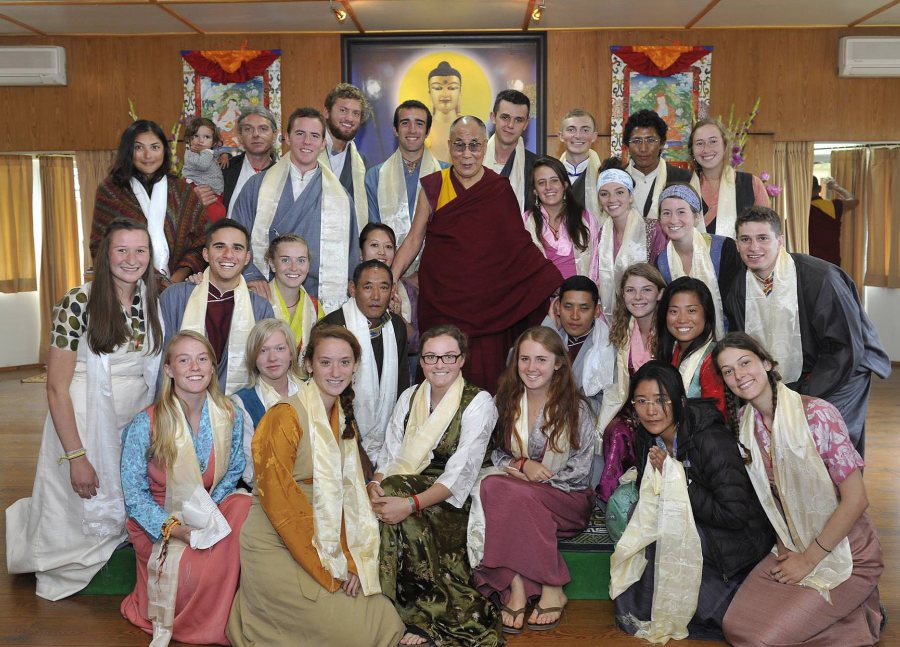
‘Living history’ as Bates juniors join private audience with the Dalai Lama
For the four Bates juniors who took part in a private audience with the Dalai Lama in October, it was like “history happening in front of my eyes,” said Natalie Silver of Bennington, Vt.
The four were among 20 American college students now studying in Kathmandu on a School for International Training program that explores Tibetan and Himalayan cultures.
The SIT program is one of myriad programs around the world offered by Bates through the college’s Off-Campus Study Office.
“It was incredible,” says Silver, a history major, “to study Tibetan history and culture and its conflict with China, and then actually to meet the Dalai Lama and speak with him about those things.”
Silver’s fellow Bates students were Ruth Baker of Minneapolis, Kristen Kelliher of Norwich, Vt., and Jacob Nemeroff of Doylestown, Pa.
The students met with the Dalai Lama during a trip to Dharamsala, India.

Four Bates juniors were among 20 students who had a private audience with the Dalai Lama: Ruth Baker (far left, middle row) of Minneapolis, Minn., Jacob Nemeroff (next to Baker) of Doylestown, Pa., Kristen Kelliher (seated, with glasses, at center) of Norwich, Vt., and Natalie Silver (far left, seated) of Bennington, Vt. (Photograph courtesy of SIT Study Abroad)
The experience prompted Nemeroff to think about how perilous it is to engage the world in an antagonistic us-vs.-them mindset.
“The Dalai Lama said that you will be a much happier and productive person if you are able to foster feelings of compassion towards others and rid yourself of feelings of anger towards others. ”
While that’s not a novel concept, since Buddhism has been around for 2,500 years, His Holiness made his point with an unlikely analogy.
“He told us that a soldier who harbors feelings of anger towards the enemy is going to compromise his mental state and his physical capacity to shoot accurately,” Nemeroff says.
“If he was going to have the best shot at hitting his enemy, he should relinquish the negative energy from within in order to maintain composure.”
It was a surprising but effective way to explain a Buddhist tenet, says Nemeroff, adding that the ability to let go of anger and resentment is a handy tool.
Take college life, for example.
“Bates is a small physical space,” he says. “Inevitably, there’s tension between friends, and tension between professors and students.”
So, like Otis Redding sang, why not try a little tenderness? Why not let it go — whether anger over a bad grade, resentment that crops up during a group project or tension between roommates.
“Relinquishing anger from within is something that I and other Bates students can do to enrich our academic and social experience,” Nemeroff says. “Exercising compassion in all aspects of our lives widens our own perspectives and allows us to embrace the perspectives of those around us.”




